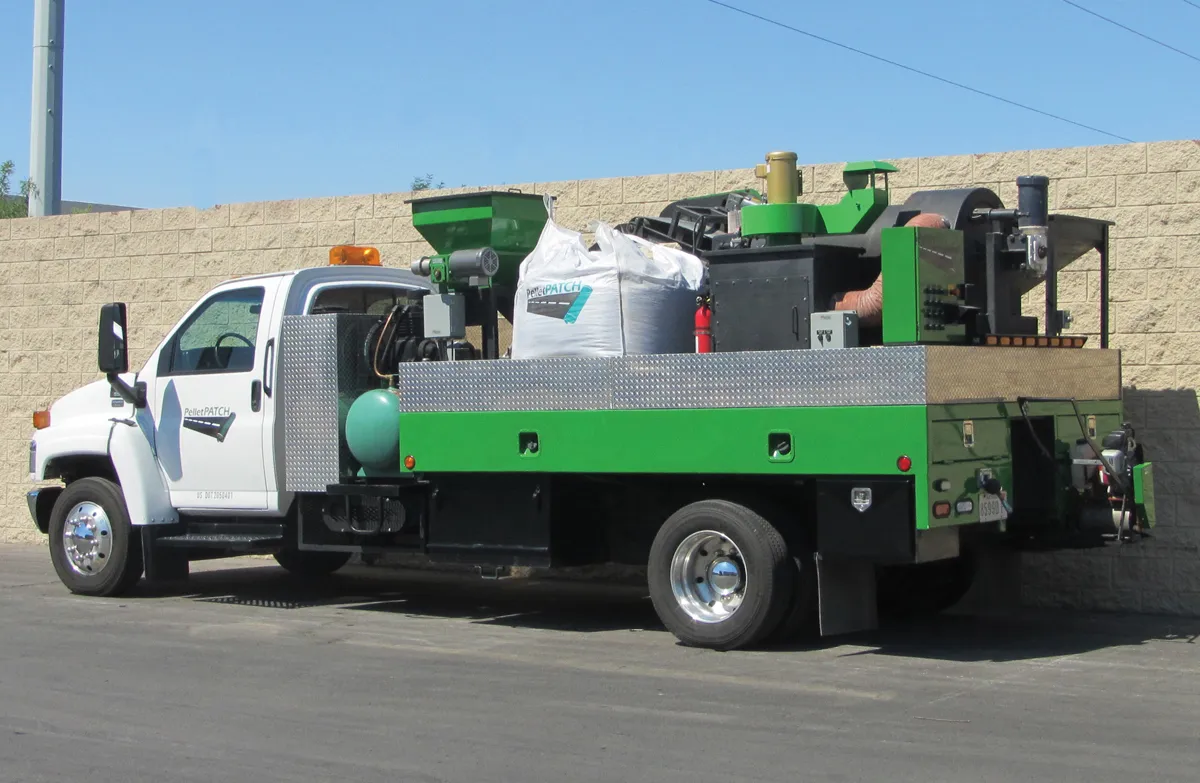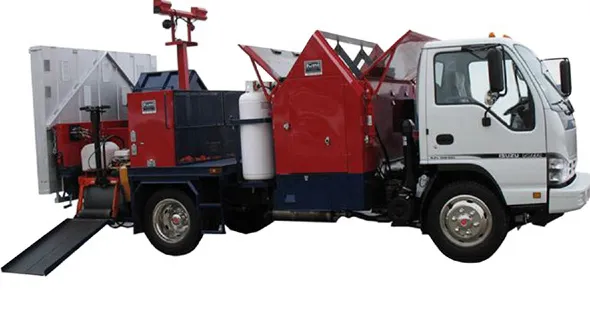Phoenix Industries says its new equipment can deliver on-the-spot pothole repairs even in the toughest winter climates. The MP 300 is a truck or trailer-mounted mobile patching unit which utilises PelletPATCH, an innovative rubber modified pellet material for pothole patching. Phoenix, who have a sales and service agreement with M-B Companies, claims this allows for permanent roadside pothole repairs.
March 20, 2012
Read time: 1 min

The MP 300 is a truck or trailer-mounted mobile patching unit which utilises PelletPATCH, an innovative rubber modified pellet material for pothole patching. Phoenix, who have a sales and service agreement with M-B Companies, claims this allows for permanent roadside pothole repairs.
Under the new agreement, US-based M-B will take over the manufacturing of all Phoenix’s new range of mobile pothole repair equipment.
M-B’s product line includes pavement marking, snow removal and broom equipment and a variety of multi-service vehicles.









